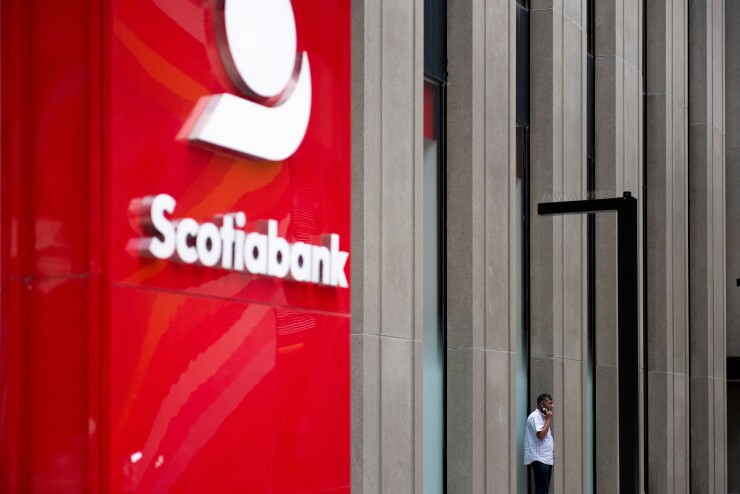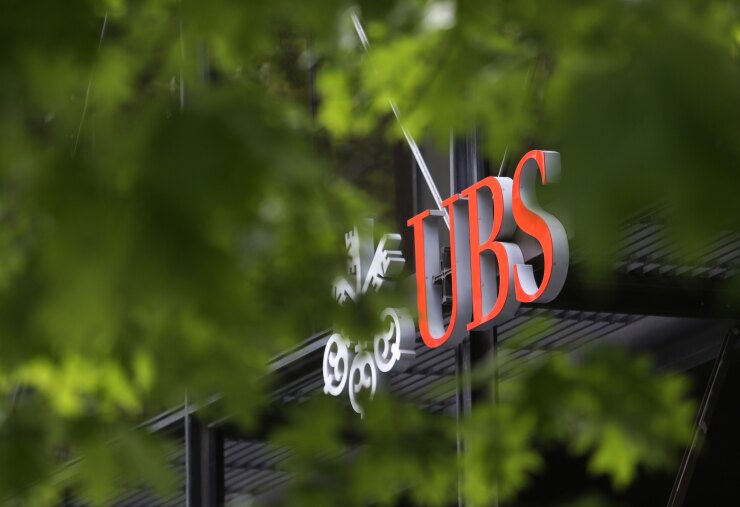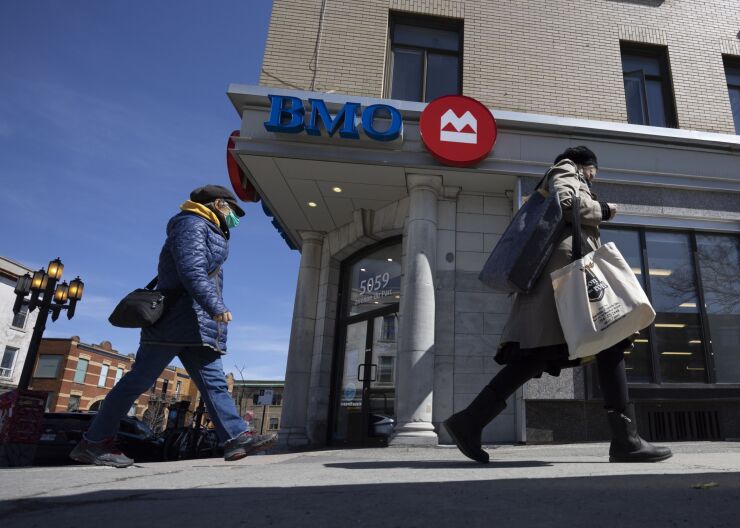U.S. banks faced a hard-fought third quarter, as consumer delinquencies and other credit challenges hindered earnings performance but didn't wholly prevent some from recording growth. Those abroad were not exempt from these issues, as even fewer reported a positive fourth-quarter earnings season.
Toronto-based Bank of Nova Scotia's adjusted per-share earnings fell just shy of the CA$1.60 figure estimated by analysts at CA$1.57, while noninterest expenses exceeded expectations by CA$45 million to total CA$5.3 billion. Analyst expectations were pulled from a Bloomberg survey.
"We anticipate that the headline miss will garner some concern in the market today," John Aiken, analyst for Jefferies Financial Group Inc., wrote in a note to clients. "However, as the market parses through the numbers the fact that the bulk of the disappointment centers around a higher-than-expected tax rate should garner some relief. "Net income for the bank also fell by 2.7% year over year to CA$403 million.
Read more:
BMO Financial Group, also in Toronto, faced similar difficulties across its loan portfolio for the company's 2024 fiscal year. The bank allocated CA$1.5 billion to account for problematic loans, tripling its provisions when compared with the same quarter last year and the fourth consecutive
CEO Darryl White said during an earnings call this month that BMO's performance will be determined in large part by how well its U.S. division does and has been held back by a "weaker banking environment" that created "lower-than-expected business activity and balance sheet growth."
Like Scotiabank, earnings per share fell short of analyst expectations at CA$2.94 compared with predictions of CA$3.44, as per data from S&P Capital IQ. But unlike Scotiabank, BMO's net income was up year over year to CA$2.3 billion from CA$1.7 billion.
Read more:
Below are more examples of how international banks with presences in the U.S. made out in the most recent earnings season and what performance predictions for the future may hold.

Tax, capital markets challenges plague Scotiabank Q4 earnings
Higher taxes and shrinking profits from its capital-markets business buffeted the Toronto-based Bank of Nova Scotia's fiscal fourth-quarter earnings performance.
Reported per-share earnings for Scotiabank were CA$1.57 on an adjusted basis, according to
"While I am encouraged by our strategic progress to date, there is significant work ahead as we focus on client primacy initiatives to drive enhanced profitability across our businesses," Scott Thomson, president and CEO of Scotiabank, said in a press release.
Read more:

UBS explores OCC license as next step for US expansion
As part of the Zurich-based UBS' plan for growth, the bank is eyeing the possibility of a license under the Office of the Comptroller of the Currency.
Previous Bloomberg reporting cited confirmation of a Handelsblatt report by a UBS spokesperson as evidence of the bank's decision to pursue a license under OCC supervision. The certification would allow UBS to underwrite loans and accept deposits across the country.
Sergio Ermotti, CEO of UBS, has pegged the U.S. market as crucial for furthering the bank's expansion efforts following last year's acquisition of Credit Suisse. The deal bolstered UBS' U.S. investment bank, which will serve to boost sign-on activity for wealthy individuals as clients under its private banking division.
Read more:

UBS faces accusations of harassing tax whistleblowers
UBS Group's French division is under fire for allegedly harassing two whistleblowers in legal action spanning more than 15 years.
Nicolas Forissier and Stéphanie Gibaud, both former UBS staffers, claim they were victims of retaliatory actions including sidelining and bonus slashing — claims that upper management of the French arm deny. Forissier was working on a report that identified potentially illegal behavior and Gibaud cooperated with French authorities in a client surveillance operation.
Régis Turrini, who is currently chairman of the French branch, attributed the 2008 financial crisis as a leading cause of the actions against Forissier.
Read more:

Loan losses, credit challenges continue to weigh down BMO earnings
Executives at BMO Financial Group warned that elevated loan-loss provisions are here to stay, as credit difficulties are predicted to continue into 2025.
BMO allocated CA$1.5 billion to cover loan losses in the bank's fourth quarter, which is more than three times what it set aside in the fourth quarter of last year and is also the
"Credit performance deteriorated more than we anticipated [and] impaired loss rates exceeded our historical range, impacting our overall results," CEO Darryl White said during the company's earnings call this month. "[However], we do believe that our credit is contained."
Read more:

Rough Q4 at TD forecasts challenging times ahead
From compliance costs in the wake of its money-laundering case to succession-planning shifts, TD Bank Group executives navigating uncertain waters have their work cut out for them.
Data from S&P Capital IQ showed TD's per-share earnings were CA$1.97 for the third quarter, missing the mark on the CA$2.52 price point estimated by analysts. Despite net income increasing across the organization by 37% year-over-year, the same figure for the U.S.-based arm of the bank dropped by roughly 34% to $634 million.
"For fiscal 2025, it will be challenging to generate earnings growth as the bank navigates a transition year, continues to advance its [anti-money-laundering] remediation with investments in risk and control infrastructure and investments in its businesses," Raymond Chun, chief operating officer and incoming CEO of the bank, told analysts this month.
Read more:





